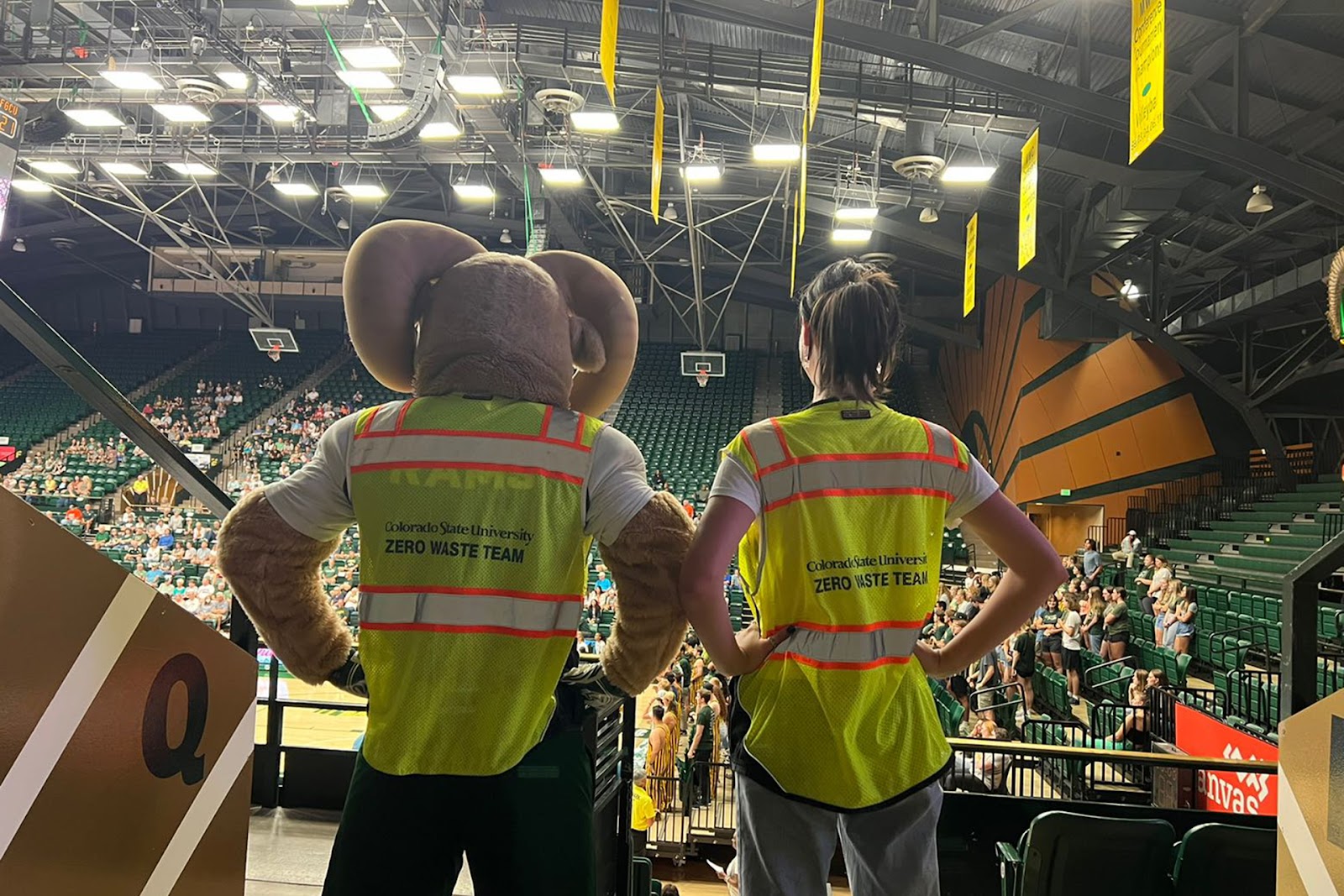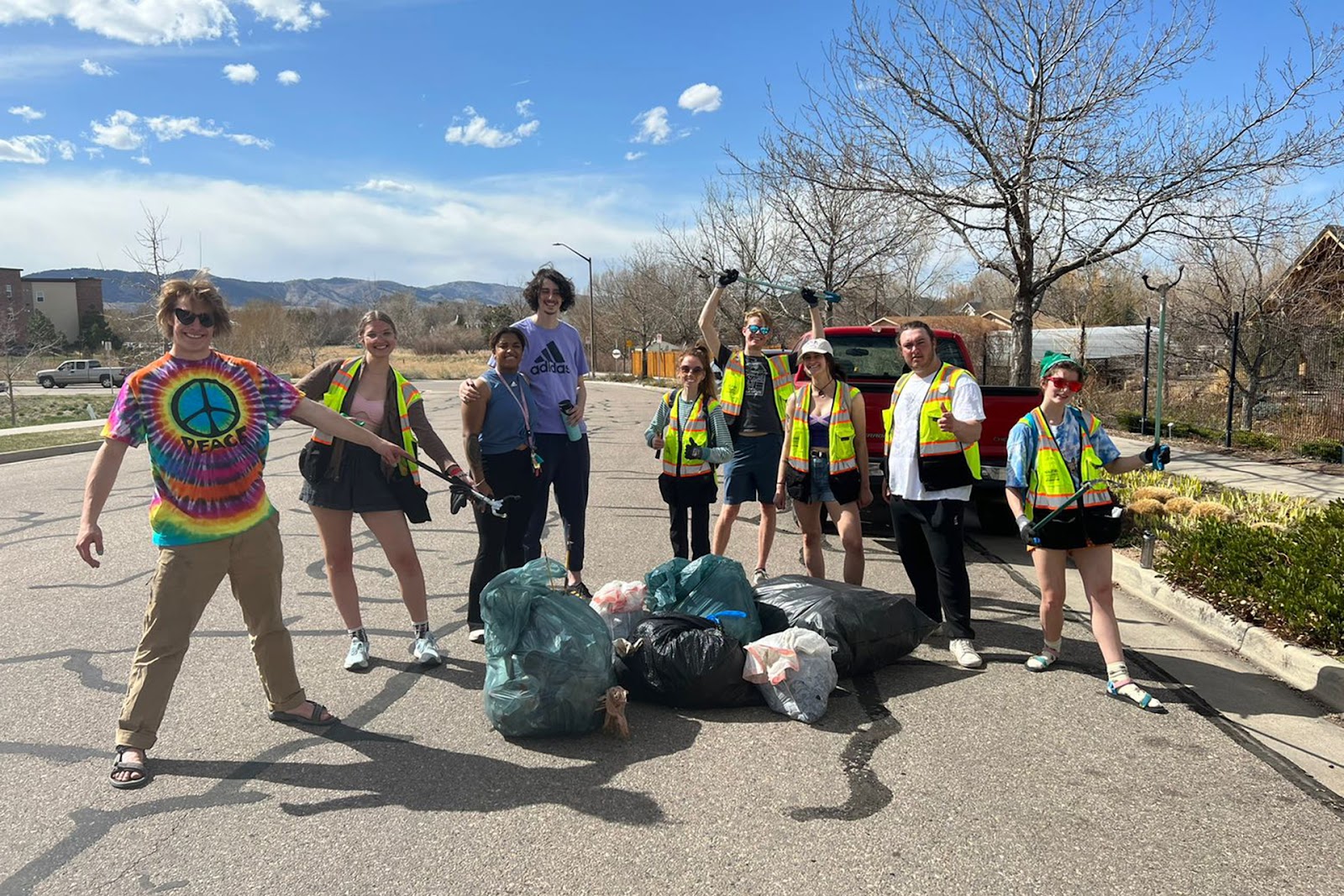It was a big deal when Colorado State University (CSU) opened Canvas Stadium in 2017. It marked the first time the CSU Rams had an on-campus venue in half a century. The attendance on opening day was the third largest in school history, and the team broke attendance for the entire 2017 season. As an added bonus, the stadium’s revenue exceeded estimates by several million dollars that year.
However, CSU and its fans weren’t the only folks excited about the new venue. The US Green Building Council (USGBC) was, too. The nonprofit organization, which rates and rewards green building practices, liked several environmental-oriented choices made in creating and operating Canvas Stadium.
For instance, Colorado sandstone and other local materials were utilized in the exterior and interior construction, reducing the carbon footprint during the building process. The stadium was able to lower water consumption by more than 40% through the installation of highly efficient fixtures.

Photo Courtesy Tim O’Hara/CSU Rams
Furthermore, the stadium’s on-campus, highly walkable location — as well as its easy link to the local Fort Collins bicycle path system — promoted the use of non-automobile transportation to games. Additionally, the venue’s limited number of parking spaces act to decrease the heat island effect. The USGBC was impressed enough to award Canvas Stadium a coveted Silver certification for Leadership in Energy and Environmental Design (LEED) in 2020.
Even with a Silver LEED, CSU has remained sharply focused on sustainability at Canvas Stadium. Several concessions vendors have begun using recyclable or compostable products.
One particularly popular green program is the Zero Waste Team. Dressing in neo-chartreuse vests, this mainly volunteer team is an active presence at Rams games at Canvas Stadium. They serve two primary functions on game day. One is to educate fans on the correct ways to dispose of their waste.
“It can be difficult to know where things go,” Sam Cummings, Zero Waste Team president, explained in 2022 to CSU’s SOURCE. “However, spending a split second longer thinking about which bin to use makes a big difference.” The team’s other primary function is helping with the sorting, frequently filling around a dozen 65-gallon bins for composting.

Photo Courtesy Colorado State University
The Zero Waste Team doesn’t just work at Rams football games. They can be found at basketball and volleyball games along with campus events such as move-in and move-out days and the popular Ag Day, along with hosting clothes swaps and e-waste drives.
“By making our students aware of sustainability, they can take that with them after they graduate and make a difference in the broader world,” Carol Dollard, CSU Facilities Management’s utility engineer,” told CSU Magazine.”
That the Zero Waste Team is a campus-wide presence is not surprising since sustainability has a campus-wide presence at CSU. Solar arrays are situated on the roofs of more than 35 buildings, and nearly all the campus restrooms have compost-only receptacles just for paper towels. The campus features food and pollinator gardens, and dining halls have started serving food grown by CSU students.
Since 2010, eight recently constructed residence halls garnered LEEDS and received subsequent sustainability-focused upgrades, too. “Living walls” have also been incorporated in several CSU buildings.
One of the grander green projects is located underneath the university’s intramural athletic fields. Moby GeoX, which opened in 2020 at the cost of $20 million, uses geothermal energy. It replaced the more highly polluting, carbon-intensive steam heating and chilled-water cooling systems to warm and cool CSU’s basketball venue, Moby Arena.

Photo Courtesy Colorado State University
Colorado State’s interest in sustainability has been attributed to its origins as a land-grant university. Since its founding in 1870, CSU has been concerned with educating people on good ways to deal with our natural resources, not just on its campus but also through its Extension Service, which has offices in every Colorado county.
“CSU started with outreach and with educating people in agricultural practices and water use,” Tonie Miyamoto, co-chair for the President’s Sustainability Commission, told CSU Magazine in 2023. “Sustainability is in our blood because of our land-grant mission.”
CSU’s commitment to the environment has been recognized many times over. In 2015, the school became the first university to receive a platinum Sustainability Tracking, Assessment, and Rating System (STARS) rating — the highest level — from the Association for the Advancement of Sustainability in Higher Education. It has re-earned this rating four additional times during the STARS’ biennial assessments.
“Being recognized as a top performer in six different categories ranging from research and curriculum to well-being and work demonstrates the University’s comprehensive commitment to sustainability across campus,” Miyamoto told CSU’s SOURCE in 2019.





